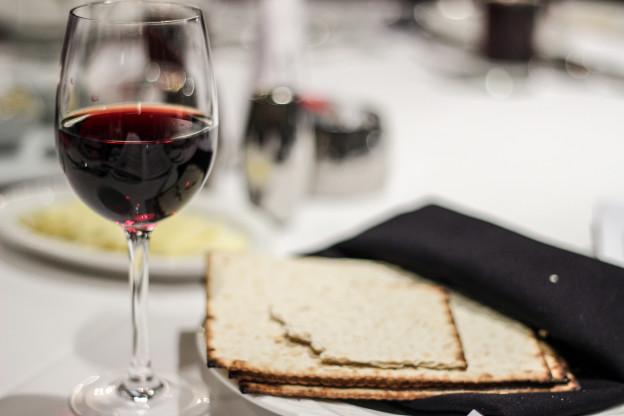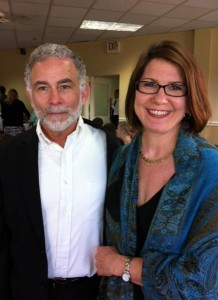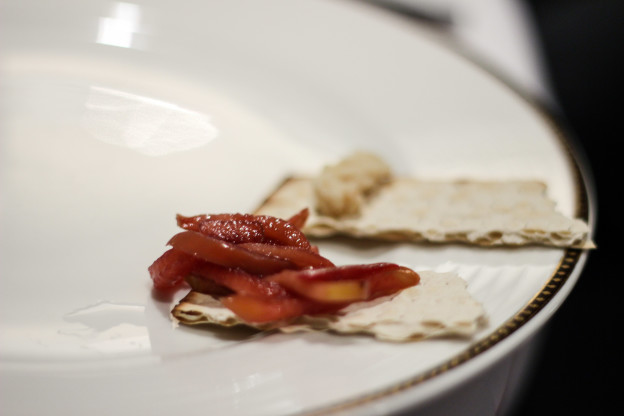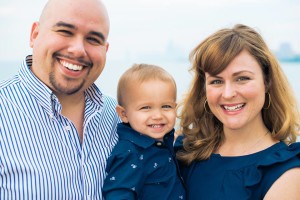Shalom dear friends!
This last of eight Passover devotionals falls one day after the end of Passover. For eight days we abstained from leaven and meditated on the the importance of removing sin from our lives; the atonement made for us by Jesus, our perfect Passover Lamb; the significance of “one house” of Jews and Gentiles united spiritually in one Savior; the birth of Israel through the Exodus and new life we have in Jesus; the bitterness of suffering; and the sweetness of God’s grace.
We hope you have been blessed by these articles as much as we have been, and have a fuller understanding of the incredible symbolism that God gave us when He commanded the celebration of this ancient holiday.
I am especially excited to share this final devotional with you by none other than my dad, Ernie Richards.
Next year in Jerusalem!
Another Pesach Seder and Elijah has not come.
The cup remains on the table, untouched. The child has been to the door and returned with no sighting to report. The seder has ended and Elijah has not appeared to herald the coming of One infinitely greater: Mashiach ben David.
Yet something truly wonderful HAS taken place in our very midst. In the Yachatz, the middle matzoh was removed from its abode in the unity bag and lifted up for us to behold.
It is unleavened, of course, as our Lord Jesus was pure, without the slightest trace of the leaven of sin. It bears the stripes of the oven, as our Lord bore the stripes of the whip that lacerated His back. It is pierced, as He was so cruelly pierced by the nails mercilessly driven through ankle and wrist.
The middle matzoh is broken for us, even as our Savior’s body was broken on that Roman cross. Half is returned to its former place.
The other half immediately commands our attention. It is wrapped in linen and hidden away, out of our sight, even as the Son’s body was shrouded in linen cloths and hidden away in a cold earthen tomb.
Later we rejoiced as the broken piece of unleavened bread appeared again, in plain sight of all. The shroud was removed, and we all gladly partook of the middle matzoh, sang our Hallel, and brought our Passover Seder to its conclusion.
Hametz, Kiddush, Urehatz, Zerah. We so enjoy the many Hebrew words we use each Pesach; they add to the authenticity as we celebrate our Jewish heritage!
All the more vividly stands out one uncommon word . . . for it is not Hebrew. The name given to our celebrated middle matzoh IS GREEK – the one and only Greek word in the entire haggadah:
Afikomen.
It means, “He came.”
Yes, another Pesach has come and gone. We sang Dayenu with zest, and Eliahu Ha-Navi with a twinge of melancholy. Elijah’s cup sits in mute, significant stillness – untouched. He has not come.
But Jesus, our Messiah and Lord, has.
And our afikomen eloquently proclaims that wonderful truth at every Seder table in every Jewish home around the world, each and every year.
“It is a faithful saying, worthy of all acceptation: Christ Jesus came into the world to save sinners . . .” I Timothy 1:15
Ernie Richards, with his wife, Karen, have served as missionaries with New Tribes Mission for 27 years. Ernie’s passion for studying and teaching the Scripture in it’s true context and Karen’s Jewish heritage are a perfect blend, enriching their ministry at New Tribes Bible Institute, in Waukesha, Wisconsin, of teaching, training and mentoring students to reach unreached tribal groups around the world with the Gospel.





